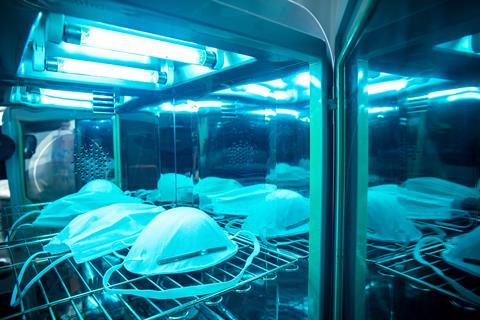An infection control strategy is fast becoming a critical element of any ethical business. This is certainly the case for the property market. Those properties that are best able to demonstrate a robust and future-proof policy when it comes to infection control will stand out in a crowded market.

Businesses will want to occupy buildings that take infection control seriously and people working for those businesses will want to know that their employers have their health and safety in hand. A few hand gel sanitising stations will not cut it.
The pandemic made it glaringly obvious that UK businesses across every sector are ill-prepared and vulnerable to future disruption. Some might argue that infection control is no longer an issue now that a Covid vaccine has been found. However, this is desperately short-sighted. Forward-thinking businesses are now taking advantage of affordable solutions that are proven to eradicate airborne and surface germs.
UVC light can be adapted for any situation — built into the infrastructure of a building or used portably. Air sterilisation units are one option and can remove harmful microbes from the air while rooms are still occupied. Alternatively, powerful UVC light lamps deliver rapid surface sterilisation, with remote control operation making this an easy process.

Organisations must rank infection control alongside sustainability and inclusivity if they are to remain credible in a competitive marketplace. One might go further and suggest that businesses that do not have an infection control strategy are displaying complacency — even negligence.
The vaccine is fantastic news. But rather than relaxing, businesses should use it as the shot in the arm to move infection control strategies to the top of the agenda.
Keith Wyatt is managing director of UV Clean Light




























No comments yet